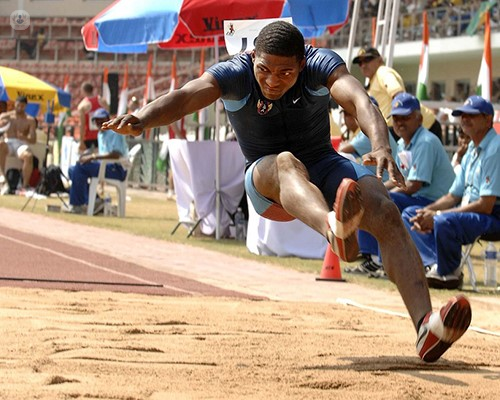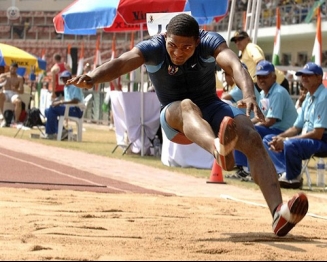CAM impingement is a long-term hip problem that can happen to young people who play sports at a high level. Unfortunately it is not very well known, and even fewer people understand the link between CAM impingement and early-onset arthritis. In this article expert orthopaedic surgeon Mr Rishi Chana shines a light on the issue and explains why more education is necessary.

What is a CAM impingement?
CAM impingement is a condition where extra bone grows on the femoral head. The femoral head is usually round and smooth, meaning it can rotate easily in the hip joint. A CAM impingement inhibits the movement of the hip and can also cause pain.
How does a CAM or femoral head ‘bump’ form?
One theory is that when we are in our teens and growing, the forces within the developing hip lead to an overgrowth of bone because of the type of activity we do.
High impact or energy burst style running, jumping, and twisting such as football, rugby, hockey, netball, and basketball can lead to very high stresses across the hip as it is still growing. The growth plate in the femoral head then responds by producing more bone here and that’s why a bump or CAM occurs.
One concern about elite-level young athletes is how the stress and additional forces placed across growing and developing bones, growth plates and joints are affected.
What are the long-term implications?
Some studies have showed that higher activity of this kind during periods of growth can lead to the premature of CAM-related shearing of the cartilage in the hip, and the onset of arthritis. This is a serious implication, as severe arthritis can have a significant impact on your mobility and quality of life in your later years.
Having seen people who played at national and international level and being fortunate enough to see some before arthritis has set in, managing these patients with hip-conserving techniques requires lifestyle modification afterwards. It is always difficult telling a 40-year-old that they need both hips replacing when they have been playing hockey three times a week for the last 25 years.
How can CAM impingement be prevented?
Unfortunately, we do not know how to prevent CAM impingement yet. Therefore, it’s important to make sure that patients looking to enter high-level sport understand the possible long-term implications.
However, most of the patients I see have not had such counselling. When talking to other health professionals (such as GPs and physiotherapists), they do not seem to link the two together and are even surprised by the link between the two.
In today’s society of full open disclosure about pros and cons, patients should be in a position to make a decision based on what is important to them both in the short and long term.

